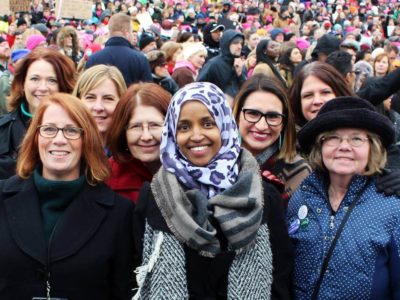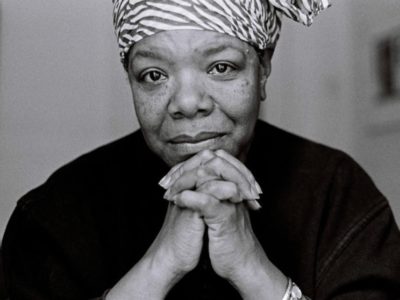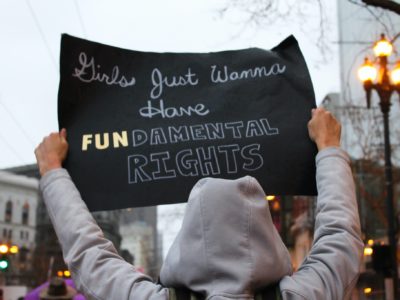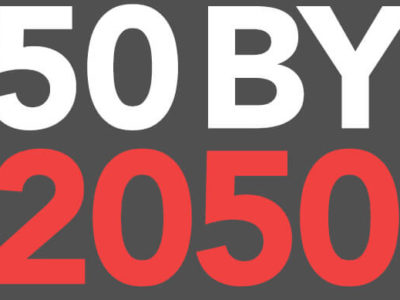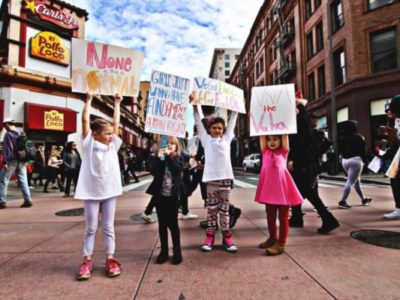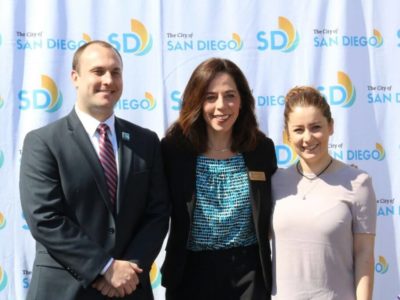With the 2016 election, America witnessed two monumental moments in political history. In the East, Donald Trump, the unconventional Republican candidate, was elected President. In the Midwest, Ilhan Omar, a Somali-American, was elected Minnesota State Representative. For Representative Omar, who left war-torn Somalia at only eight years-old, this opportunity gives her the chance to be the voice for her community and change the narrative surrounding black, Muslim women in America.
CAREER TIMELINE
1982 – Born in Somalia
1990 – Left Somalia for refugee camp because of Civil War
Mid-Late 1990s – Immigrated to the U.S.
2011 – Graduated from North Dakota State University with a B.A. in Political Science and International Studies
2016 – Elected to Minnesota House of Representatives for District 60B
Q&A WITH POWERFUL WOMEN LEADER REPRESENTATIVE ILHAN OMAR
Q: At College Magazine we’re working together with EMILY’s List, Emerge America, Human Rights Campaign, Higher Heights, Running Start, She Should Run, Victory Fund and IGNITE on an initiative to fight for equal representation in Congress called “50 by 2050.” What are your thoughts on the goal of achieving 50% of women in Congress by 2050?
A: That’s a brilliant plan. I recently saw a tweet from Senator Kamala Harris and she said, “Women are not only marching, but they are also running.” And I think that it’s exciting to see so many young women stepping up to be part of campaigns and be civically engaged. But I think it’s also exciting to see a wave of young women who are taking the steps to actually run themselves and represent the communities they come from and the values they hold there.
Q: Over the last few months in particular, we’ve seen more women running for office and getting involved in that process. How do you feel that will end up shaping the political sphere of this country?
A: It’s no secret; we know that women in Congress produce more legislation and are actually able to pass their legislation more often than their counterparts. And I think that it’s also no secret that we create holistic policies that are important to creating a prosperous and equitable country, environment and communities. And so I think that it’s vital to have women’s voices at the table. Because when we are at the table we’re able to produce amazing things.
Q: How did your experience as a refugee shape your career in politics and public service?
A: Often times you’re a person who knows what it means to go without justice in the justice system. You know, you can sort of see where there’s an opportunity to work on fixing that. And for me, experiencing a refugee camp, coming to this country and recognizing all the identities that I carry would make me believe that I have a purpose and need to create a more just environment for my generation and future generations. And not everyone has to have the same experiences that I’ve had.
Q: How does being an immigrant change your outlook on politics today?
A: I’m a little bit more optimistic, I think. I still believe that politics is a tool that we use to make positive impact. And I really believe that negative actions have real consequences. And as someone who grew up in a different experience and knows what it means to live under a dictatorship and to not have the ability to vote and have a voice, I appreciate what we have here and our ability to make our voices heard. Even though it doesn’t feel like we are sometimes, I truly believe that we need to continue to work on it, and that we make sure that our ideals match our reality.
Q: What inspired you to get involved in the political sphere?
A: The need to see systematic change. I’ve seen what happens when people don’t get engaged, what happens when there are only a few people making decisions. And I wanted to be at the table and bring all of the voices of all of the people that I share my identities with and make sure our issues, concerns and dreams were being talked about.
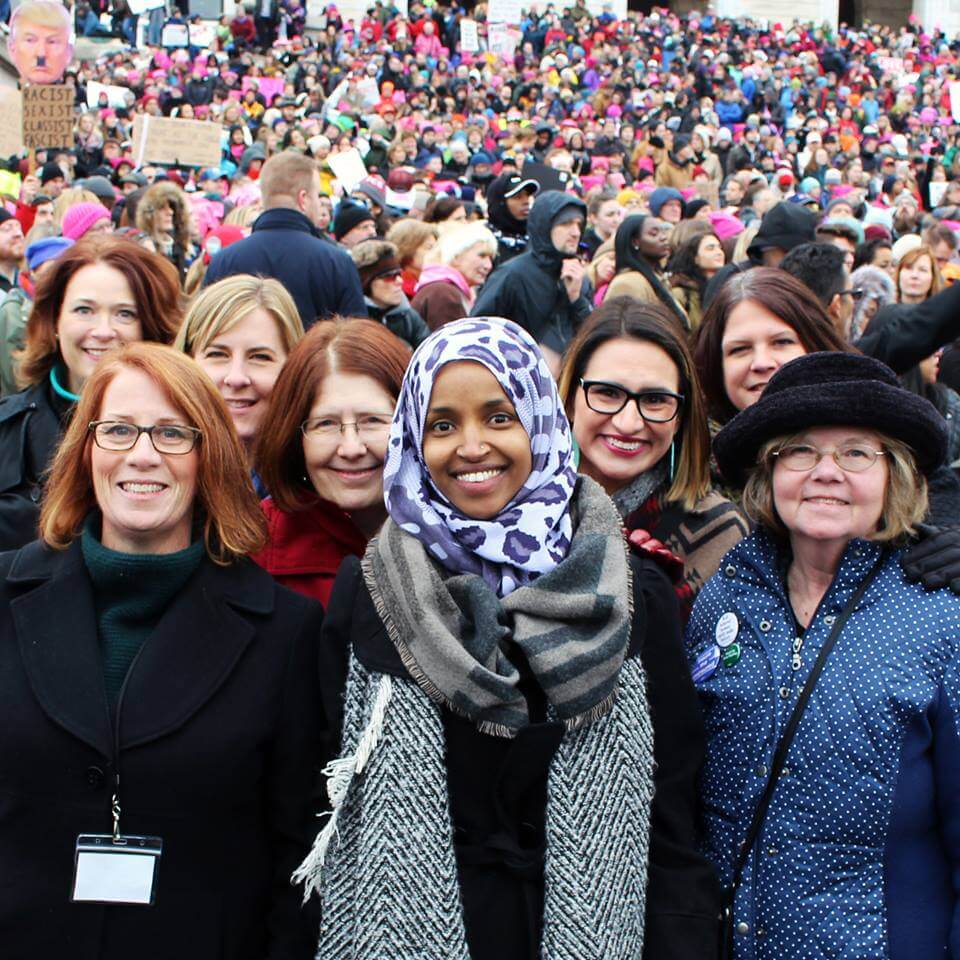
Q: What challenges did you face as a Muslim woman running for public office?
A: It was an interesting election. I ran against a 44 year incumbent who was a woman herself, and I also ran against a male Muslim Somali candidate. In a three way race, it really got very contentious and a lot of people and my opponents were very much interested in the election being about our identities. For me, I knew that the diverse people of my district really cared about issues and they didn’t much about what color, gender or religion was of the person. They wanted someone who cared about community engagement, someone who cared about actually being a representative voice and someone who reflected their values as a community.
That’s what I talked about, and I think early on in the campaign the negativity that was coming from my opponents that was starting to swirl around me kind of disappeared, and we were able to suspend all of that because we really believed in focusing on the actual issues and having a conversation with everyday people with the things that keep them up at night, and the things that excite them and the things that get them going. We were able to win because of that.
Q: What issues are you passionate about?
A: I am passionate about creating a platform of environmental, criminal, social, economic justice, and making sure that we’re not talking about prosperity and equality for certain people, but we are talking about for everyone. And making sure that the American ideals of liberty, justice and the pursuit of happiness really become the reality that we live under. Those are the things that I’m passionate about.
Q: Can you speak about the Women Organizing Women organization you’re a part of?
A: It’s a very young organization run by women. It is for women to make sure that women who are everyday leaders in committees and their own households can understand that they can be leaders in society and that they can have leadership positions in the public sphere. They don’t have to be the ones supporting the leaders, but they can be the ones that are being supported. It’s an exciting initiative to empower and engage women to uplift one another and to celebrate one another’s leadership, and to see each other’s struggles as one song.
Q: Do you have any other projects or moments that you are involved in that has been the most rewarding of your career so far?
A: I think everything is rewarding for me. I think that with every single conversation that I have, and even I think that all the criticisms and backlash, that I feel are rewarding because I know that it allows me to challenge those narratives and allows me to have a conversation about that particular thing someone is criticizing me for. And I know that in that fight to change that narrative that it’s not only about me but it’s about millions of people who share one of the identities that I carry that might be under attack at that particular moment. And so I look at my life in the space that I take up as a politician and as a leader, not for myself, but for the bigger purpose of changing the narrative that people have about refugees, about Muslim, about women and about people who have all of those identities at the same time.
Q: At College Magazine, we’re the guide to the undergraduate experience. In what ways did your college experience at North Dakota State University prepare you for your experiences in politics and public service?
A: That particular school and experience was one that was really affirming to me. It was an environment in the school, not really in the outside community but definitely in the school community, where diversity was celebrated and encouraged. It was at the center of our learning. And for me, I felt like it was a place where I can share me fully and challenge and push myself and others without the fear of having a backlash or being labeled as the “other.” I feel like it was the training ground for me to fully feel like I can unapologetically be black, Muslim, woman socially-conscious activist. I was President of the MSA there. We did a lot of cool things, and it was a beautiful experience. I don’t have one negative memory of my time at that school. Truly, it’s what it’s all about.
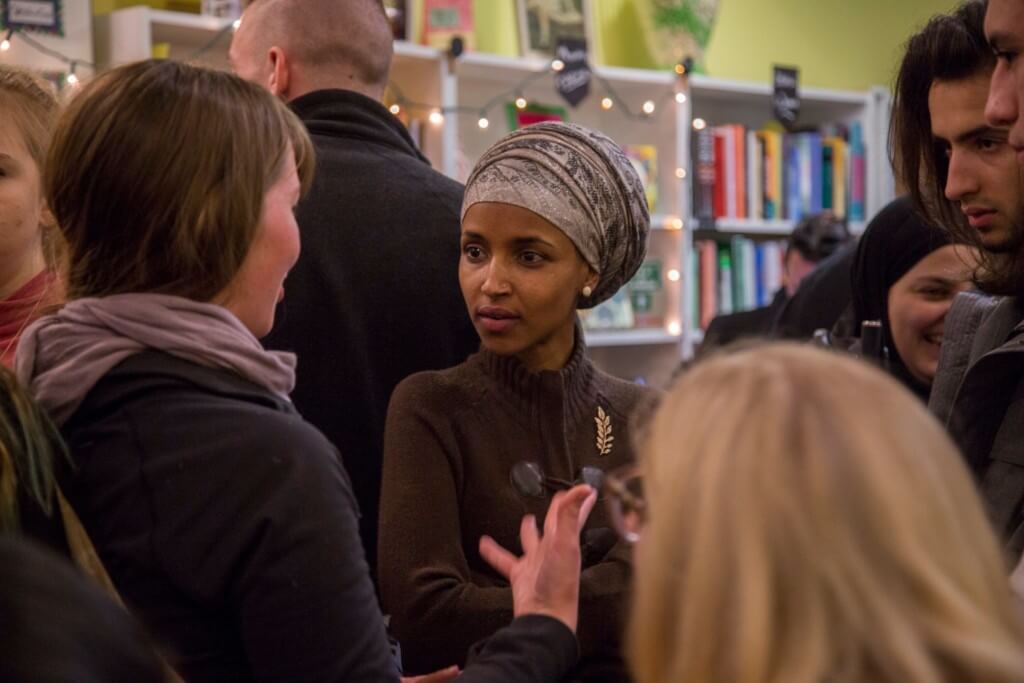
HOW TO BECOME A POWERFUL WOMAN LEADER
Follow Your Passions
“Start small or big, but do something that you truly believe in. Not because it’s politically okay, but it’s something that makes you feel like you’re actually making a true contribution that you can be proud of,” said Representative Omar.
HOW TO CONNECT WITH REPRESENTATIVE ILHAN OMAR
Email her at [email protected]
Follow her on Twitter
Like her Facebook page

